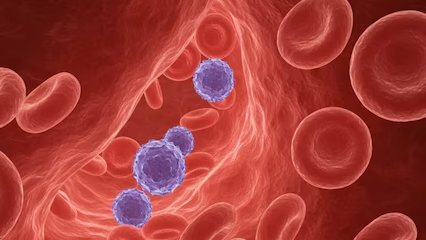Blood is a specialised fluid that moves throughout the body, delivering oxygen and nutrients to every cell. At the same time, it also removes waste products produced. This blood is composed of blood cells (red blood cells, white blood cells) and platelets, suspended in plasma and The blood plays a vital role in maintaining our overall body health and functions correctly.
After years of analysis and observation, scientists have identified a new blood group, called Gwada negative, that has so far only been identified in one person on the planet.
Most people are familiar with the four broad human blood types—A, B, AB, and O—and, likely, they may even know that they come in positive or negative varieties as well. However, that’s only the tip of the iceberg when it comes to the complexity of human blood types. Humans theoretically contain millions of different blood types, as more than 600 antigens have been identified on human blood cells. Any combination of those antigens could be considered a new blood type.

The 68-year-old is the only known person in the world to have this blood group, which has been named “Gwada Negative,” after a local name for her home islands. The researchers behind the discovery announced their work in a presentation at the International Society of Blood Transfusion’s Congress in Milan, which concluded June 4.
The research team first met the woman in 2011, when she was living in Paris and undergoing routine tests before a surgery. But the tests couldn’t reveal her blood type or any matches for it.
An unusual antibody associated with this blood was discovered in 2011, but it wasn’t until 2019 that DNA sequencing found that a genetic mutation was responsible for the unique blood type, which was officially recognized by the ISBT this month. The researchers named the group “Gwada negative,” after the patient’s homeland, and confirmed that the woman inherited the blood type from her parents, who each contained the mutated gene.

1 comment
Bald Manytu
One and only one in the world she is lucky